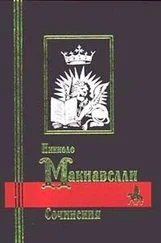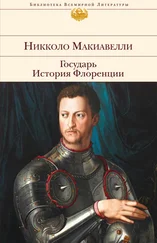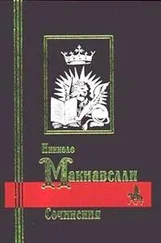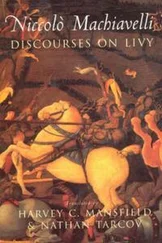The other and better course is to send colonies to one or two places, which may be as keys to that state, for it is necessary either to do this or else to keep there a great number of cavalry and infantry. A prince does not spend much on colonies, for with little or no expense he can send them out and keep them there, and he offends a minority only of the citizens from whom he takes lands and houses to give them to the new inhabitants; and those whom he offends, remaining poor and scattered, are never able to injure him; whilst the rest being uninjured are easily kept quiet, and at the same time are anxious not to err for fear it should happen to them as it has to those who have been despoiled. In conclusion, I say that these colonies are not costly, they are more faithful, they injure less, and the injured, as has been said, being poor and scattered, cannot hurt. Upon this, one has to remark that men ought either to be well treated or crushed, because they can avenge themselves of lighter injuries, of more serious ones they cannot; therefore the injury that is to be done to a man ought to be of such a kind that one does not stand in fear of revenge.
But in maintaining armed men there in place of colonies one spends much more, having to consume on the garrison all the income from the state, so that the acquisition turns into a loss, and many more are exasperated, because the whole state is injured; through the shifting of the garrison up and down all become acquainted with hardship, and all become hostile, and they are enemies who, whilst beaten on their own ground, are yet able to do hurt. For every reason, therefore, such guards are as useless as a colony is useful.
Again, the prince who holds a country differing in the above respects ought to make himself the head and defender of his less powerful neighbours, and to weaken the more powerful amongst them, taking care that no foreigner as powerful as himself shall, by any accident, get a footing there; for it will always happen that such a one will be introduced by those who are discontented, either through excess of ambition or through fear, as one has seen already. The Romans were brought into Greece by the Aetolians; and in every other country where they obtained a footing they were brought in by the inhabitants. And the usual course of affairs is that, as soon as a powerful foreigner enters a country, all the subject states are drawn to him, moved by the hatred which they feel against the ruling power. So that in respect to those subject states he has not to take any trouble to gain them over to himself, for the whole of them quickly rally to the state which he has acquired there. He has only to take care that they do not get hold of too much power and too much authority, and then with his own forces, and with their goodwill, he can easily keep down the more powerful of them, so as to remain entirely master in the country. And he who does not properly manage this business will soon lose what he has acquired, and whilst he does hold it he will have endless difficulties and troubles.
The Romans, in the countries which they annexed, observed closely these measures; they sent colonies and maintained friendly relations with [2] See remark in the introduction on the word "intrattenere."
the minor powers, without increasing their strength; they kept down the greater, and did not allow any strong foreign powers to gain authority. Greece appears to me sufficient for an example. The Achaeans and Aetolians were kept friendly by them, the kingdom of Macedonia was humbled, Antiochus was driven out; yet the merits of the Achaeans and Aetolians never secured for them permission to increase their power, nor did the persuasions of Philip ever induce the Romans to be his friends without first humbling him, nor did the influence of Antiochus make them agree that he should retain any lordship over the country. Because the Romans did in these instances what all prudent princes ought to do, who have to regard not only present troubles, but also future ones, for which they must prepare with every energy, because, when foreseen, it is easy to remedy them; but if you wait until they approach, the medicine is no longer in time because the malady has become incurable; for it happens in this, as the physicians say it happens in hectic fever, that in the beginning of the malady it is easy to cure but difficult to detect, but in the course of time, not having been either detected or treated in the beginning, it becomes easy to detect but difficult to cure. This it happens in affairs of state, for when the evils that arise have been foreseen (which it is only given to a wise man to see), they can be quickly redressed, but when, through not having been foreseen, they have been permitted to grow in a way that every one can see them, there is no longer a remedy. Therefore, the Romans, foreseeing troubles, dealt with them at once, and, even to avoid a war, would not let them come to a head, for they knew that war is not to be avoided, but is only to be put off to the advantage of others; moreover they wished to fight with Philip and Antiochus in Greece so as not to have to do it in Italy; they could have avoided both, but this they did not wish; nor did that ever please them which is for ever in the mouths of the wise ones of our time:—Let us enjoy the benefits of the time—but rather the benefits of their own valour and prudence, for time drives everything before it, and is able to bring with it good as well as evil, and evil as well as good.
But let us turn to France and inquire whether she has done any of the things mentioned. I will speak of Louis [3] Louis XII, King of France, "The Father of the People," born 1462, died 1515.
(and not of Charles) [4] Charles VIII, King of France, born 1470, died 1498.
as the one whose conduct is the better to be observed, he having held possession of Italy for the longest period; and you will see that he has done the opposite to those things which ought to be done to retain a state composed of divers elements.
King Louis was brought into Italy by the ambition of the Venetians, who desired to obtain half the state of Lombardy by his intervention. I will not blame the course taken by the king, because, wishing to get a foothold in Italy, and having no friends there—seeing rather that every door was shut to him owing to the conduct of Charles—he was forced to accept those friendships which he could get, and he would have succeeded very quickly in his design if in other matters he had not made some mistakes. The king, however, having acquired Lombardy, regained at once the authority which Charles had lost: Genoa yielded; the Florentines became his friends; the Marquess of Mantua, the Duke of Ferrara, the Bentivogli, my lady of Forli, the Lords of Faenza, of Pesaro, of Rimini, of Camerino, of Piombino, the Lucchese, the Pisans, the Sienese—everybody made advances to him to become his friend. Then could the Venetians realize the rashness of the course taken by them, which, in order that they might secure two towns in Lombardy, had made the king master of two–thirds of Italy.
Let any one now consider with what little difficulty the king could have maintained his position in Italy had he observed the rules above laid down, and kept all his friends secure and protected; for although they were numerous they were both weak and timid, some afraid of the Church, some of the Venetians, and thus they would always have been forced to stand in with him, and by their means he could easily have made himself secure against those who remained powerful. But he was no sooner in Milan than he did the contrary by assisting Pope Alexander to occupy the Romagna. It never occurred to him that by this action he was weakening himself, depriving himself of friends and of those who had thrown themselves into his lap, whilst he aggrandized the Church by adding much temporal power to the spiritual, thus giving it greater authority. And having committed this prime error, he was obliged to follow it up, so much so that, to put an end to the ambition of Alexander, and to prevent his becoming the master of Tuscany, he was himself forced to come into Italy.
Читать дальше












